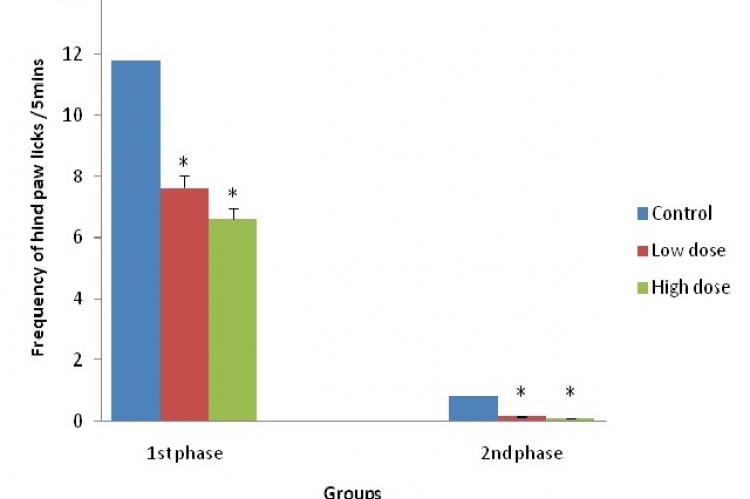Nymphea lotusis a perennial and herbaceous aquatic plant, whose leaves has be reportedly used for various therapeutic purposes (such as aphrodisiac, antioxidant and antibacterial purposes) including the treatment of fever, diarrhea, urinary difficulties, enteritis, dyspepsia, bowel problems tumours, gastric ulcers and abnormal heart beat. The present study investigates the effect of the ethanolic extract of Nympheae lotus on pain sensation in mice. The hot plate and formalin test was used to evaluate the effects of this plant on pain. Before the neurobehavioural parameters were assessed, the LD50, Phytochemical and acute toxicological screenings of the plant were determined. The median lethal dose was above 5000 mg/kg orally in mice for the ethanol extract. Thirty (30) Swiss mice were randomly assigned into 3 groups; control (normal saline), low dose (25mg/kg) and high dose (50mg/kg) for twenty one days (21). The results showed that the frequency and duration of hind paw licks were significantly lower in mice administered low dose and high dose of the plant when compared to the control (P<0.05).Similarly, the frequency and duration of paw attention in the low dose and high dose treated mice was also significantly lower when compared to control (P<0.05).The latency of jump was significantly higher for the low and high dose groups compared to control (p<0.05). In conclusion, these findings suggest that the ethanolic extract of Nympheae lotus decreases pain sensation in mice and therefore may be useful in the treatment of pain disorders.
View:
- PDF (6.3 MB)


